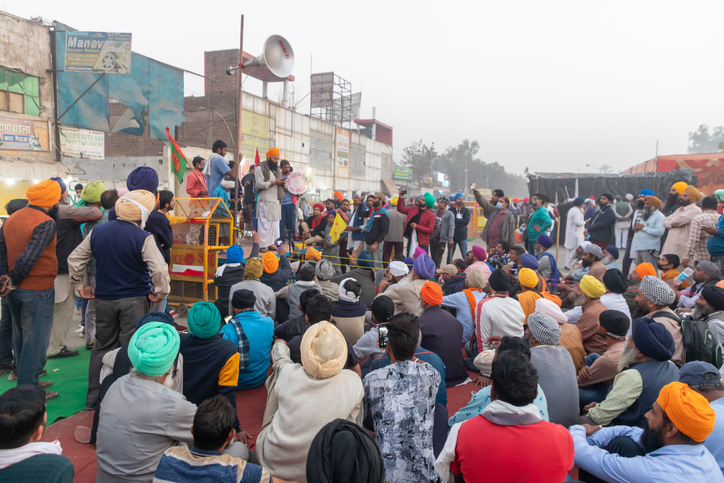
Posted On : Nov 8 2024
Understanding the Farmers` Protest in India: A Call for Agrarian Reform
The Farmers' Protest in India has been one of the most significant social movements in recent times, drawing global attention to the plight of agricultural workers and the need for substantial agrarian reforms. Originating primarily from the northwestern states of Punjab, Haryana, and Uttar Pradesh, the protest represents a collective outcry against the government's contentious agricultural laws passed in September 2020.

Background:
The crux of the protest lies in three farm laws introduced by the Indian government: The Farmers' Produce Trade and Commerce (Promotion and Facilitation) Act, The Farmers (Empowerment and Protection) Agreement on Price Assurance and Farm Services Act, and The Essential Commodities (Amendment) Act. These laws aimed to liberalize the agricultural sector, allowing farmers to sell their produce outside government-regulated markets and enter into contracts with private corporations. However, farmers argue that these laws endanger their livelihoods by exposing them to exploitation from big corporations and undermining the existing support systems.
Key Issues:
- Dismantling of MSP: One of the central concerns of the protesting farmers is the potential dismantling of the Minimum Support Price (MSP) system. MSP ensures that farmers receive a guaranteed price for their crops, providing them with a safety net against market fluctuations. The fear is that with the entry of large corporate players, MSP might become irrelevant, leaving farmers vulnerable to price exploitation.
- Corporate Control: Farmers fear that the new laws would lead to corporate dominance over agricultural markets, resulting in unfair trade practices and exploitation of small-scale farmers. They argue that the government's agenda prioritizes corporate interests over the well-being of farmers, exacerbating economic inequality in rural areas.
- Loss of Autonomy: The laws also threaten the autonomy of farmers by allowing private companies to dictate terms of trade and agricultural practices. Many farmers feel that these laws undermine their traditional farming practices and local autonomy, pushing them into dependency on corporate entities.
The Protests:
The protests began in late 2020, primarily in the form of peaceful demonstrations, sit-ins, and road blockades. Farmers, along with various agricultural unions, organized massive rallies and marches, garnering widespread support from across the country. Despite several rounds of negotiations between the government and farmer representatives, no consensus has been reached, leading to a prolonged stalemate.
Government Response:
The government has offered amendments to the laws and proposed a temporary suspension, but these gestures have been met with scepticism from farmers who demand a complete repeal of the laws. The government's handling of the protests has also drawn criticism, with accusations of heavy-handed tactics, internet shutdowns, and arrests of protesters.
Global Impact:
The Farmers' Protest has reverberated globally, garnering attention and solidarity from international communities. Celebrities, activists, and politicians worldwide have expressed support for the farmers' cause, amplifying their voices on social media platforms and through public statements.
Conclusion:
The Farmers' Protest in India represents a struggle for social justice, economic equity, and agricultural sovereignty. It underscores the urgent need for comprehensive agrarian reforms that prioritize the welfare of farmers and ensure sustainable and equitable development of the agricultural sector. As the protests continue, the government faces mounting pressure to address the legitimate concerns of the farming community and engage in meaningful dialogue to find a resolution that upholds the rights and dignity of farmers across the country.
No Comments Added




















